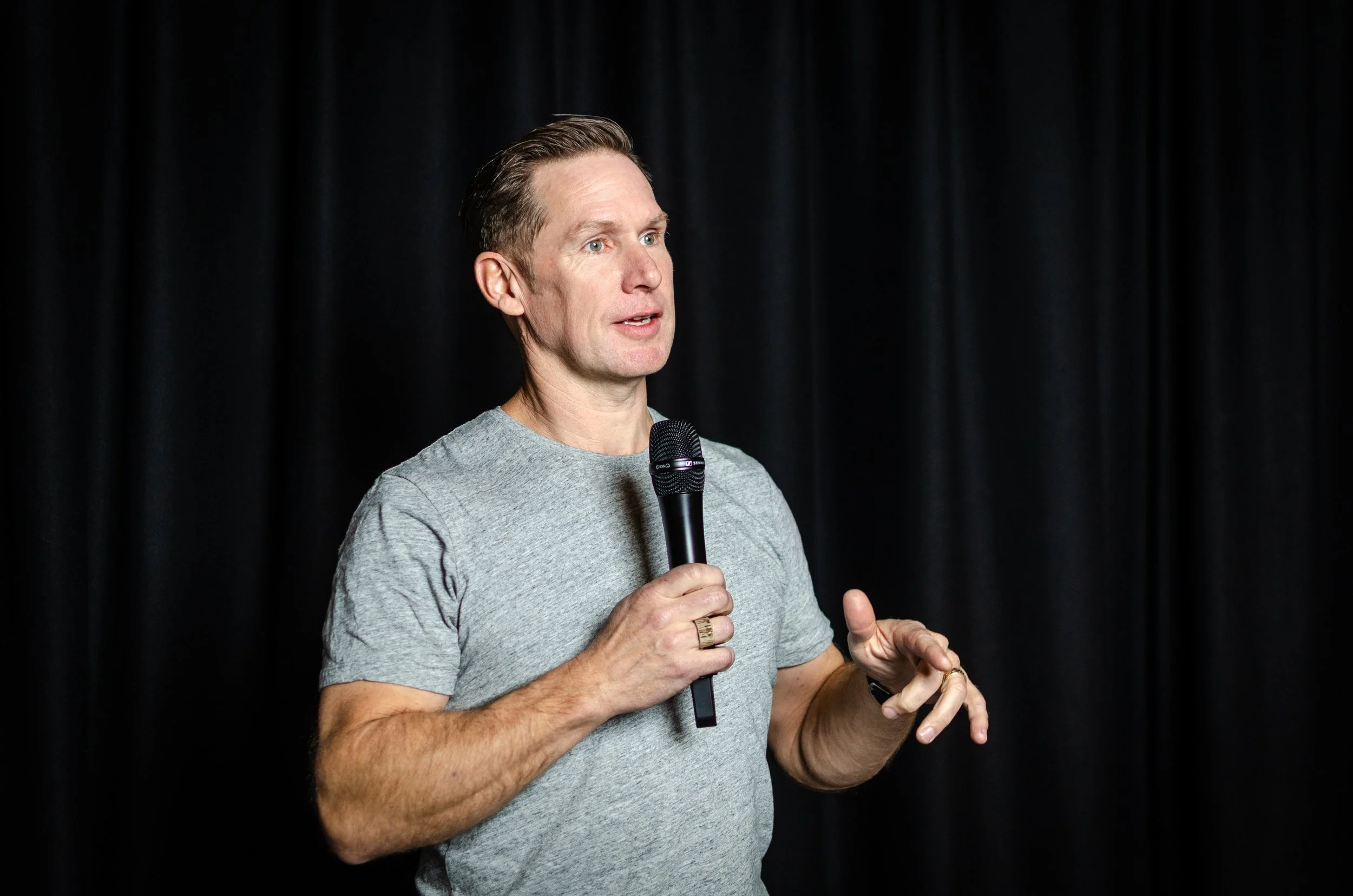Why Authenticity is Your Greatest Asset in Public Speaking
I had one of those parenting moments on the morning of a school celebration day. You know the kind where your toddler pushes every button, you lose your composure completely, and afterwards you feel terrible about yourself. As I stood in front of a room full of parents just hours later, I had a choice: pretend it never happened or share my truth.
I chose authenticity. I told them about my morning, acknowledged my imperfection, and spoke about giving myself compassion. The response was immediate and profound. Parents approached me afterwards, thanking me for "letting them in" and being real. That moment taught me something fundamental about public speaking that no traditional course had ever addressed.
Most public speaking advice focuses on eliminating what makes us human.
Stand straighter
Project confidence.
Memorise your script.
Hide your nervousness.
Don't stumble over words.
The underlying message is clear: authenticity is a weakness to be overcome.
But here's what I've discovered after working with hundreds of leaders and facilitators: the speakers who create the deepest impact aren't the most polished ones. They're the ones who have the courage to be real. When we try to hide our humanity, we create distance between ourselves and our audience. When we embrace it, we create connection.
This matters because in our hyper-connected world, people are starving for genuine human connection. They can spot inauthenticity from a mile away, and when they do, they switch off. But when someone speaks with genuine authenticity, something magical happens, walls come down, trust is built, and real change becomes possible.
Authenticity in public speaking isn't about sharing your deepest secrets or being vulnerable for the sake of it. It's about bringing your genuine self to your message. It's the difference between delivering information and creating transformation.
When you speak authentically, several powerful things occur. Your audience immediately senses they're hearing from someone real, not a corporate spokesperson or rehearsed performer. This creates psychological safety, they feel permission to be human too. Your message becomes more memorable because it's connected to genuine emotion and experience. Most importantly, you build the kind of trust that moves people to action.
I've seen founders pitch to investors by sharing their genuine passion alongside their business model, and watched them secure funding not just for their idea, but for their authenticity. I've witnessed leaders transform their teams by admitting they don't have all the answers and creating space for collective problem-solving. These aren't accidents! They're the natural result of authentic communication.
The Three Elements of Authentic Speaking
Through my work, I've identified three key elements that separate authentic speakers from everyone else. First, know your audience deeply. This isn't about demographics or job titles, it's about understanding their reality, their challenges, and what truly matters to them. When you speak to their genuine experience, authenticity flows naturally.
Second, connect emotionally rather than just intellectually. This might mean sharing your own experience that led to your passion for the topic, or acknowledging the challenges your audience faces. Emotion is what transforms information into insight, and insight into action.
Third, provide clarity about your message and intention. Authenticity doesn't mean rambling or being unprepared. The most authentic speakers are crystal clear about what they want their audience to understand, feel, or do. This clarity allows them to speak from the heart while still being strategic about their communication.
Perhaps the most radical thing about authentic public speaking is that it gives others permission to be human too. When you show up as you truly are, imperfect, passionate, and real, you model what's possible. You demonstrate that vulnerability is not weakness but courage, and that connection is more powerful than perfection.
In a world that often feels disconnected and performative, authenticity becomes a superpower. It's what transforms presentations into conversations, speakers into leaders, and audiences into communities of change.
Your story matters. Your perspective is valuable. Your authentic voice is needed in a world full of noise. The question isn't whether you're qualified to speak authentically, it's whether you're brave enough to let your true self be seen and heard.

